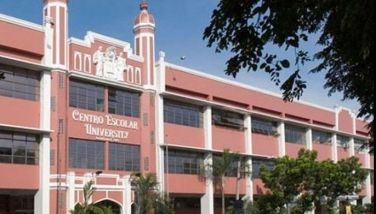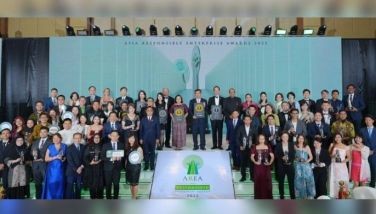Digital transformation for 2025 and beyond
The Philippines is entering an exciting phase of digital transformation, poised to unlock opportunities that could reshape its economic and social future. As the digital era continues to evolve, embracing innovation and fostering adaptation have become national imperatives. By 2025 and beyond, digital transformation will serve as a cornerstone of progress, enabling both economic growth and improved quality of life.
In fact, the 2024 KPMG Global Tech Report reveals that, on average, 87% of organizations have successfully leveraged technology to boost their profits within the past 24 months. To navigate this transformation effectively, it is essential to explore the driving forces, the opportunities they present, and the challenges ahead.
Digital transformation’s current state in the Philippines
The Philippines has made substantial progress in its digital transformation journey, propelled by government initiatives such as the e-Government Master Plan and private sector investments in technology. According to a 2024 report by the Department of Information and Communications Technology (DICT), over 70 percent of government services are now available online. The private sector has similarly embraced digital technologies across industries like banking, retail and telecommunications, signaling robust adoption and growth.
Key enablers of this progress include:
1. Enhanced connectivity: The National Broadband Plan and the deployment of 5G networks have significantly improved internet access and speed, particularly in urban areas.
2. Digital payments adoption: The emergence of fintech platforms has accelerated the country’s transition towards a cashless economy.
3. Government reforms: Initiatives such as the Ease of Doing Business Act, the National ICT Ecosystem Framework, the National Cybersecurity Plan 2023-2028 and the e-Government Master Plan have created a comprehensive blueprint for public sector digitalization, promoting connectivity, cybersecurity, and efficient, citizen-centric services.
The future of digital: Key trends to watch in 2025 and beyond
1. Revolutionizing the power of AI and automation: Artificial Intelligence (AI) and automation are revolutionizing industries, driving efficiency and productivity to new heights. In the Philippines, these technologies are streamlining repetitive tasks, such as customer service in call centers, and optimizing critical processes like inventory management and supply chain logistics in manufacturing. By harnessing the power of data-driven decision-making and improving operational precision, AI-powered solutions are poised to significantly contribute to the country’s economic growth.
2. Building smarter cities for a better future: As urban centers like Manila, Cebu and Davao continue to expand, smart city initiatives such as the Internet of Things (IoT), advanced data analytics and digital platforms are emerging as ways to improve the quality of life for their citizens. Through the optimization of public transportation systems, enhancing energy efficiency and implementing smarter waste management practices, these initiatives are laying the foundation for sustainable urban development.
3. Revolutionizing governance and finance with blockchain: Blockchain is unlocking a new era of transparency, efficiency and security in governance and finance. From tamper-proof records for land titling and procurement to cost-effective remittance systems, blockchain is fostering trust and innovation while enabling the development of financial products tailored to local needs.
4. Empowering a digitally competent workforce: Upskilling and reskilling initiatives are bridging the skills gap in emerging technologies like AI, cybersecurity and data analytics. Through public-private partnerships, Filipino workers are being equipped to excel in a tech-driven global economy, ensuring job security and competitiveness.
5. Sustainability and green technology: Sustainability is no longer an afterthought but a core principle in digital transformation. Organizations are increasingly adopting eco-friendly technologies to minimize their environmental impact. Innovations like energy-efficient data centers and smart grid systems are reducing environmental impact while supporting global sustainability goals, ensuring digital progress aligns with eco-friendly principles.
6. Increased role of public-private partnerships (PPPs): PPPs are emerging as a powerful tool to drive digital transformation in the Philippines. By combining the resources, expertise and technology of both the public and private sectors, they can address complex challenges and accelerate progress. For instance, PPPs can facilitate the development of innovative tech-based healthcare solutions to improve access to medical services and streamline public services through digitalization. These collaborations not only enable the scaling of digital projects but also ensure that solutions are practical, innovative and sustainable, benefiting both citizens and the economy.
7. Embracing zero trust architecture: Adhering to the principle of ‘never trust, always verify,’ the zero trust security model takes center stage to become a fundamental component of protection strategies in 2025. This approach ensures that every user, device and connection – whether inside or outside the network – is consistently authenticated and authorized. As hybrid work environments and distributed networks become the norm, zero trust will play a critical role in mitigating insider threats, minimizing attack surfaces and enforcing granular access control across all endpoints.
Into the future
The Philippines is stepping into a future defined by digital innovation, with profound implications for its economy and society. While challenges persist, the collective efforts of the government, private sector, and society can transform this vision into reality. By addressing hurdles and seizing emerging opportunities, the country can position itself as a digital leader in Southeast Asia, unlocking a future of growth, innovation and inclusivity.
Gilbert Trinchera is a Partner under the Technology Consulting Group of R.G. Manabat & Co., a Philippine partnership and a member firm of the KPMG global organization of independent member firms affiliated with KPMG International Limited, a private English company limited by guarantee. The firm has been recognized as a Tier 1 in Transfer Pricing Practice and in General Corporate Tax Practice by the International Tax Review. For more information, you may reach out to Gilbert Trinchera through ph-kpmgmla@kpmg.com, social media or visit www.home.kpmg/ph.
- Latest
- Trending































